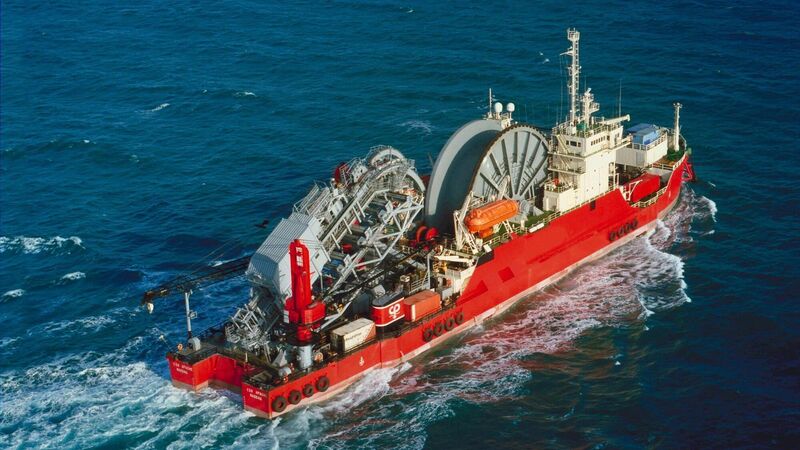National emergency exercise estimates six-month repair time for gas line from Britain

A boat laying a gas pipe on the sea bed. A table top exercise of a “major disruption” to Ireland’s gas supplies from Britain identified potential for 'rolling blackouts' File picture
A table top exercise of a “major disruption” to Ireland’s gas supplies from Britain identified that large gas users in pharmaceutical and agricultural industries would be hit first, with potentially “rolling blackouts” across areas.
The exercise, dubbed Operation Cathal, which took place last December, estimated it would take six months to repair the damage to the pipeline.













